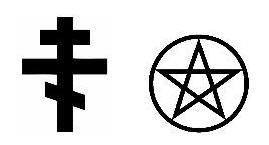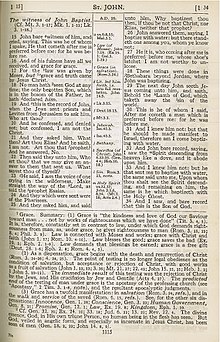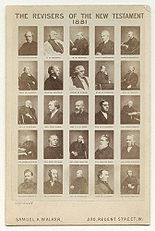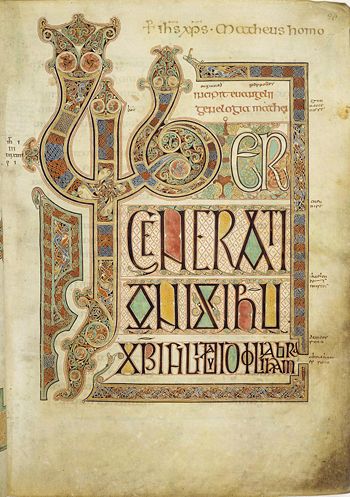The Climax of Matthew’s story
With chapter 28 we come to the end of Matthew’s report of his Nazarene teacher Jeshua ben Josef, whom he at first had not yet recognised as the future king of this earth (the king of the Jews). First he had thought this Nazarene was going to liberate them from the Romans and be their king in their age.
Often they had wondered what their master meant when he talked about events to come. Many things he said also did not become clear until God had left His Pneuma come over them.
The apostles did know that the Hebrew Scriptures explained everything that they had to know, but they were pleased that their rabboni took all the time to explain the things which were not yet so clear for them or where there was much dispute between them and the Pharisees.
For many people it was and it still is
“seeing is believing”
and they had seen incredible things, which they also did not always understand how these things could happen. Their master assured them he could not do those things without his heavenly Father, Who is much greater than him and all other gods.
“Therefore, Jesus answered them: “I tell you this truth: The Son is unable to do anything from himself unless he sees something the Father is doing. For whatever that One may do, it is possible the Son also may do likewise.” (Joh 5:19 mhm)
“You apostles heard that I said to you, ‘I am departing and I am returning to you apostles.’ If you loved me you would certainly rejoice, because I am going toward the Father, because the Father is greater than me.” (Joh 14:28 mhm)
Several times they had seen that Jesus had done miracle works, and each time Jesus had told the people to whom he had done it, not to thank him but to thank God. In modern times this should have those who think Jesus is God already wonder why Jesus said not to thank him but God. Also, Jesus his mentioning that God is greater than him should raise questions about the possibility that Jesus would be God.
The one in whom they had put so much hope now had died and by his death, all their expectations seemed to have crashed. (Again for those who think that Jesus is God, should wonder if He then faked His death and for what cause, because God cannot die but Jesus did.) Mary, the mother of Jesus and Mary Magdalene were witnesses of that horrible death of Christ. They were close to the stake on which Jesus was nailed like a criminal.
All the time they had seen Jesus humble and presenting himself as a servant of God, saying he was not here to be served, but also telling them he was been authorised by God.
“Just as the Son of Humankind came not to be served but to serve and to sacrifice his soul as a ransom in the place of many.”” (Mt 20:28 mhm)
God cannot be seen, but this Son of Humankind was seen by lots of people, to whom he told he was coming to declare his heavenly Father the Only One True God, the God of Israel Who is One. With his death, there came an end for all those people to see this great storyteller. All were assured it was finished now with this man. But that is without counting on God and without believing in the prophecies which tell a totally different story.
Naturally, the Romans were afraid that Jesus body would disappear and that the followers of that Nazarene would then tell he rose from the dead. Pilate had agreed that Jesus could be buried but listened also to the Pharisees who were afraid something could happen with that killed man. On the day after the preparation, the chief priests and the Pharisees gathered together with Pilate, and said that they remembered that when that preacher was still alive ‘that deceiver’ had said that after three days he would rise again. Therefore, they hoped that Pilate would give orders for the grave to be made secure until the third day, lest the disciples come and steal him away and say to the people that their master has risen from the dead. As such the last deception will be worse than the first. For that reason, Pilate ordered to have guards making sure nobody could or would temper with that son of man.
Pilate ordered the grave to make it as secure as those guards know how and set a seal on the stone which was very heavy and blocked the entrance to the tomb.
“62 On the next day–after Preparation–the religious hierarchy and Pharisees assembled together before Pilate, 63 saying, “Lord, we remember that plotter said when he was alive, ‘After three days I will be raised up.’ 64 So, command that the grave be secured until the third day so none of his disciples can come and steal his body and then claim to the people, ‘Jesus was raised up from the dead.’ Then the final plot will be worse than the first.” 65 Pilate said to them: “You have a custodial guard. Go and make the security as you know how.” 66 These went their way and secured the grave, sealing the stone with the custodial guards.” (Mt 27:62-66 mhm)
The women who came to the grave were very surprised and could not think what would have happened to their master. Their mentioning to have found an empty tomb spread very quickly. This also because some of the guards came into the city and reported to the chief priests all that had happened. And when they had assembled with the elders and counselled together, the religious hierarchy gave a large sum of money to the soldiers, for them to tell the people that the Nazarene his disciples came by night and stole him away while they were asleep. From Matthew’s storyline, we hear that the Pharisees were also willing to protect the guards in case the governor would want to punish them for not being on guard. The guards did not mind the money and did as they had been instructed. This way this story was widely spread among the Jews, as it will be to the day Matthew wrote his book.
“11 While the women were on their way, look! some of the custodial guards entered the city of Jerusalem and reported back to the religious hierarchy everything that had happened. 12 Now in a conference with the Jewish elders they took counsel. They agreed to give plenty of money to the soldiers, 13 telling them, “Say that his disciples came in the night and stole his body while you were sleeping. 14 And if this ever reaches the governor we will convince him and you need not fear.” 15 Those soldiers took the silver money and did as they were told. And just so the rumor spread around among the Jews down to this very day.” (Mt 28:11-15 mhm)
Matthew, in his gospel book, had looked at the family tree of their master and had given a review of all those happenings which should get us to think about the role of that man about whom was spoken already much in the ancient Hebrew writings. Matthew gave a picture from John’s preaching and baptism of Jesus. He also showed how Jesus was tested and how a higher position was offered to him, which he refused, because it is only given to God to give such positions. Often Jesus was surrounded by crowds, who could hear him tell lots of stories. He gave them sermons that should make them think about how to treat others as well as how to relate to God. For Matthew, it had become clear that the true treasures were to be sought in heaven. Therefore, he wrote down how Jesus advised seeking the Kingdom, but also how he warned to be careful and to be aware of the difficulties to go through the narrow gate.
All those things Matthew wrote down so that people could come to see that their master was the one spoken about in the Garden of Eden. (Later on, Jesus good friend John would go deeper into that in his gospel.) Matthew by those few years had come to see and understand that Jesus was that promised man coming from the root of King David.
In his gospel he not only shows how the 12 apostles were called but also how they got ministerial instructions. Following those instructions not to fear but to go out in the light and to preach from the housetops, the writing of his gospel was part of that preaching work, making sure people could come to know the full story.
“26 So, you should not fear them. For there is nothing concealed which will not be revealed, and nothing hidden which will not become known.27 What I tell you in the dark, tell in the light; and, what your ear hears, preach on the housetops.28 Do not fear those who kill the body but are unable to kill the soul. Rather, continue to fear the One capable of destroying both soul and body in Gehenna. (Mt 10:26-28 mhm)
“16 Now the eleven disciples traveled to Galilee to the mountain where Jesus had arranged to meet them. 17 When they saw Jesus they bowed to the ground before him but some doubted. 18 Upon approaching Jesus he said to them, “All authority in heaven and upon earth was given to me.19 Therefore, go your ways and make disciples of all the nations, baptizing persons in the name of the Father, the Son and the holy Pneuma.20 Teach them to observe everything I commanded you. And, look! I am with you apostles until the consummation of the Age.” (Mt 28:16-20 mhm)
There was now enough to teach about and for. Now all stories Jesus had told them seemed to fit and all the references to the scrolls made sense.
With the last chapter of his gospel Matthew comes to present the “bomb”, the full reason why it is so important to believe in his master. With everything Jesus had said, people should be able to come to see the things to God and to understand how Jesus Christ fits in the Plan of God. Woe to the scribes and Pharisees, hypocrites who can be found in every period of time.
“27 “WOE to you hypocritical Scribes and Pharisees because you are like whitewashed graves which outside seem to appear beautiful but within are full of the bones of the dead every uncleanness!28 Just so you also give the appearance to others of righteousness but inside you are filled with hypocrisy and lawlessness!29 “WOE to you hypocritical Scribes and Pharisees because you build the graves of the prophets and decorate the memoriums of the righteous.30 You also claim, ‘If we had lived in the days of our forefathers we would never have been guilty of the blood-letting of the prophets.’31 So you provide evidence against yourself that your are sons of those who murdered the prophets.32 Now, live up to the example your forefathers!33 “Serpents, born of vipers, how will you escape the judgment of Gehenna? 34 Because of this, look! I am sending to you prophets, wise persons, and scribes. You will kill some of them, others you will impale, and still others you will scourge in your synagogues. You will persecute from city to city.35 As a result there will come upon you all the righteous blood poured out on earth–from the blood of righteous Abel to the blood of Zechariah (son of Barachiah) whom your murdered between the Divine Habitat and the altar.36 I tell you this truth: all this will come upon this generation! (Mt 23:27-36 mhm)
The prophet Jesus was impaled, but now the good news could come to mankind. Jesus had an open heart for all and gave himself as a ransom, so that all people could come under the grace of salvation. The price Jesus paid made it able to become free.
Through Christ’s death people now could bcome adopted as a child of God
What the ladies came to see was something the whole world had to hear. All over should the cries be heard:
At that time, just after the burial of their master they did not yet understand the impact of this all.
“10 Now these included Mary Magdalene, Joanna, Mary the mother of James and also the others with them. They told the apostles everything, 11 but all their words seemed like a lot of foolishness to them and so they did not believe them. 12 [[However Peter rose and ran to the memorial tomb. He bent forward and saw only the linen wrappings. Then he left wondering what had happened.]]” (Lu 24:10-12 mhm)
Event after the event made the good news spread and they come to believe that the impossible had become possible.
“33 That very hour they got up and returned to Jerusalem and found the eleven apostles assembled together with other disciples. 34 They told them, “The Master has truly risen and he has appeared to Simon!” 35 And so they began to explain everything that happened while on the road and how Jesus had revealed himself to them by the breaking of the bread.” (Lu 24:33-35 mhm)
Having seen that Jesus came back from the dead, was now evidence that everything he had told was a word of truth, given by instruction and inspiration of God. For Matthew and the other disciples of Christ it had become clear that they had to do with the Prophetic truth, Jesus being in line with king David, being the sent one from and anointed one of God, or the Christ.
We too should come to see who Jesus really was and is; and why we should honour him for what he has done. We also should come to see and understand how this rising of Christ is an example of what can happen to us. Jesus is the first one of the new world or the first for the newborn generation. With him, we can find hope in a renewed world and a restored paradise. With Matthew’s account, we should have a full picture of the 2° Adam. The 28th chapter being the culmination or the climax to which all the previous chapters and also several Old Testament books point at.
Now we come to learn that it is possible that a man can step out of death. In case Jesus would be God, then naturally we still would not have any proof of such thing. But here it is given to us, even while the Romans did everything to have people believe that what believers said happened to be false. But in such case they would not be willing to risk their life. They were sure that something magical happened and were prepared to die for telling the truth. The Nazarene had told he was the resurrection and the life and that those who would believe in him were going to live, even though when they died.
“25 Jesus said to Martha: “I am the Resurrection and the Life. The person who continues to believe in me, though dying, will live.26 Also, everyone living who continues to believe in me, will never die throughout all future periods of time. Do you believe this?” (Joh 11:25-26 mhm)
The fact that it were first women who discovered the empty grave is in a way also interesting, because for Jews women had low status and legally didn’t qualify to be witnesses. But here Matthew notates them to have been the first witnesses. If the disciples were manufacturing or embellishing this story, undoubtedly they would not given those women the honour and would have claimed that men had discovered the empty tomb, because their testimony would have been considered much more credible. Recording the then-embarrassing fact that women first saw the tomb empty is just one more indication that the biblical writers were committed to accurately recording what had actually happened.
Historically it was clear for everybody that somehow the guarded grave had become empty. The Romans and the higher hierarchy with the Pharisees wanted Jesus death but not heaving him disappeared. The Jewish leaders wouldn’t have taken the body because this would give their Jewish brethren who followed Jesus reason to say he was risen out of the dead. A lot of people wanted the Nazarene Jew Jeshua (Jesus) to stay dead. For them, instead of stealing or doing a way with the body it would have been even nicer to parade through the streets with Jesus’ corps. Parading with Jesus’ lifeless body down the main streets of Jerusalem would have instantly killed the growing Jewish movement of Nazoreers (or Jewish sect The Way).
For the apostles, that body of their master having disappeared would be a disaster. It would give them nothing in their hands to prove that Jesus was who he said and that could happen all the things he had said would happen.
We may be sure, in case they had taken away the body, they would have told so under torture, because keeping such a lie and to die for such a charade would be asked too much.
A deliberate cover-up, a plot to perpetrate a lie about the raising of Christ, could not have survived the violent persecution of the apostles and their followers. In later years we also could find hundreds of people who were cast to the lions and got to fight for their life, whilst they could be free when they denied the story of the resurrection of their lord.
Throughout the years following this event told in the last chapter of Matthew, thousands of people refused to renounce the lordship of Christ.
Peter and John also had come to the grave and had checked it out for themselves. They too saw it was empty. But they, with others, came to see their master again. Over a period of forty days this man who had been impaled appeared alive a dozen different times to more than 500 individuals — to men and women, to believers and doubters, to tough-minded people and tenderhearted souls, to groups, to individuals, sometimes indoors and sometimes outdoors in broad daylight.
Doctor Luke would later write down what happened further with their master and with them who now came to believe even stronger than they did before. But until today the gospel of Matthew is the opening book of a new era, the Messianic Time, by which he showed that Jesus is really that promised son of God, who did all the time the Will of God, to be His humble servant and faithful slave.
+
Preceding
Matthew 20:24-28 – The Nazarene’s Commentary: Authority Not the Way – Serve Others
Death of Christ and Silent or Black Saturday #1 Abandonment and burial
Death of Christ and Silent or Black Saturday #3 A sincere man or an imposter
++
Further reading
- When you believe Jesus is God, do you think he died?
- Jesus the “God-Man”: Really?
- The saviour Jesus his human side
- The son of man given authority by God
- Servant of his Father
- The night before Jesus his execution
- Lost senses or a clear focus on the one at the stake
- Looking for a primary cause and a goal that can not offer philosophers existing beliefs
- Redemption #4 The Passover Lamb
- A Messiah to die
- Celebrations pointing to events of ultimate meaning
- A perfect life, obedient death, and glorious resurrection
- Why Did Christ Die on the stake
- Through Christ’s death you can be adopted as a child of God
- Death and Resurrection of Christ
- Why think that (3) … Jesus rose from the dead
- Jesus is risen
- Today’s Thought “God’s servant will succeed! He will be raised up, exalted, highly honoured!” (Weekend of 2020 June 27-28)
- The resurrected Lord
- Proof of the resurrection of Christ
- Do you purpose that your mouth will not transgress
- Eostre, Easter, White god, chocolate eggs, Easter bunnies and metaphorical resurrection
- Let me keep to “first importance” things
- A Living Faith #8 Change
+++
Additional relevant articles
- Crucifixion, Burial and Resurrection of Jesus
- The Empty Tomb of Jesus by Lee Strobel
- Contemporary Scholarship and the Historical Evidence for the Resurrection of Jesus Christ by William Lane Craig
- What are the arguments for the historicity of the empty tomb?
- The Resurrection Argument That Changed a Generation of Scholars – Gary Habermas at UCSB – YouTube
- The Historical Evidence for the Resurrection of Jesus of Nazareth That Even Non-Christian Scholars Believe
- Risen
- A Case for the Resurrection of Jesus (Pint 1)
- A Case for the Resurrection of Jesus (Pint 2)
- A Case for the Resurrection (Pint 3): Scourging
- The Doctrine of the Literal Physical Resurrection by Martyn Lloyd Jones
- Did Jesus Christ Rise from the Dead by Ravi Zacharias?
- Was Jesus’ resurrection a hoax and His death a sham by Lee Strobel?
- What are the Circumstantial Evidence FOR the Resurrection by Lee Strobel?
- Evidence FOR the Resurrection of Jesus Christ by Lee Strobel
- The Evidence for the Resurrection by Sir Norman Anderson
- Thoughts on the Resurrection
- No Resurrection No Christianity by John Young with David Wilkinson
- Did Jesus appear bodily after His death?
- Words for the Way VI: Pastoral notes for locked down times -The Road the Emmaus Recognising Christ


















 It was after 25 years serious research that in 1881 the British bishop, biblical scholar and theologian, and
It was after 25 years serious research that in 1881 the British bishop, biblical scholar and theologian, and 












 Bijbelvorsers Webs
Bijbelvorsers Webs Belgische Vrije Christadelphians / Belgian Free Christadelphians – Old Google Main Website
Belgische Vrije Christadelphians / Belgian Free Christadelphians – Old Google Main Website Christadelphian Ecclesia
Christadelphian Ecclesia Hoop tot Leven – Redding in Christus
Hoop tot Leven – Redding in Christus
Recent Comments